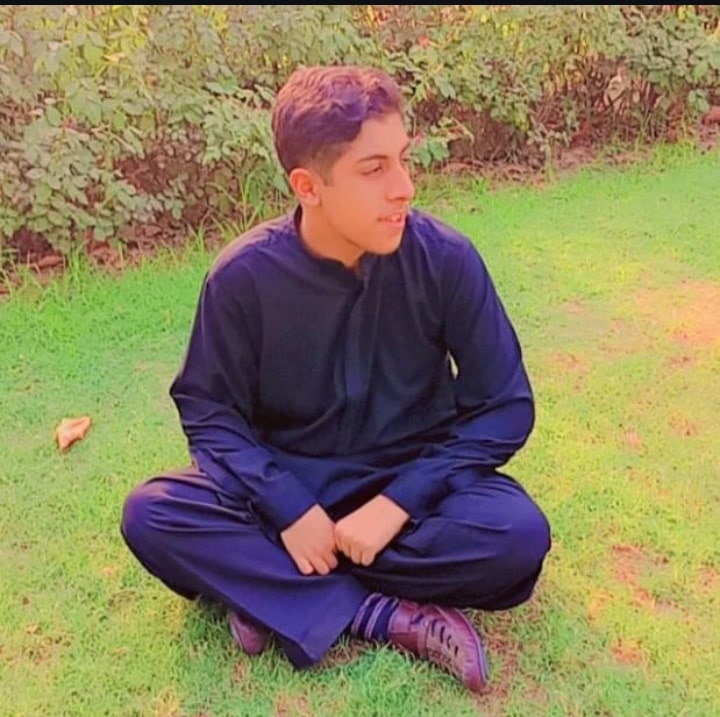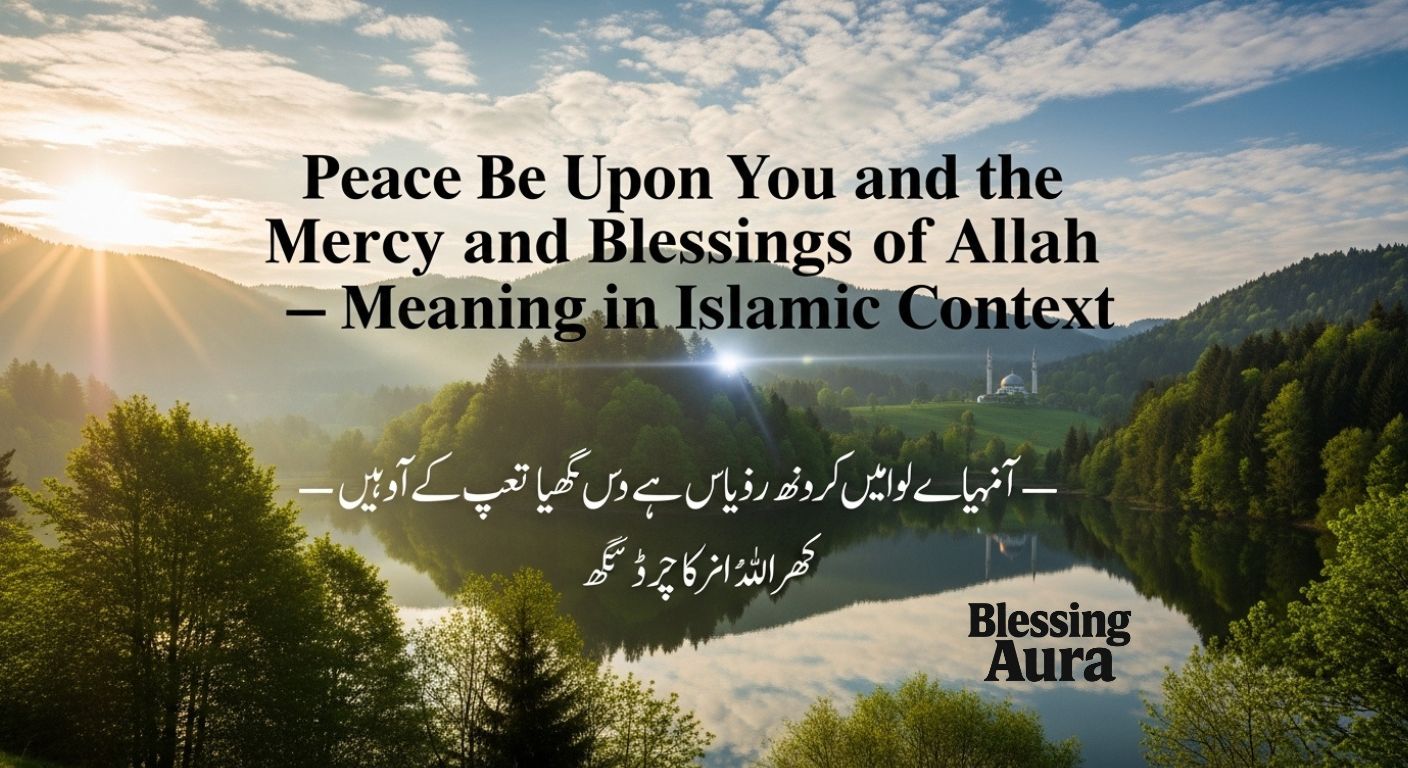The phrase Peace Be Upon You and the Mercy and Blessings of Allah holds a deep place in Islamic culture. It is more than just an Islamic greeting in Urdu; it is a heartfelt prayer for peace, kindness, and divine favor. In Arabic, this greeting is known as As-salamu Alaikum translation, and it has been passed down through generations. The Mercy and blessings of Allah meaning reflects compassion, goodwill, and unity among people. Understanding the greeting in Islam meaning helps connect both Muslims and non-Muslims to the values it carries. This article explains its Urdu meaning, Islamic context, and the spiritual beauty behind the words.
What Does “Peace Be Upon You and the Mercy and Blessings of Allah” Mean?
The phrase “Peace be upon you” is a translation of the Arabic greeting “السلام علیکم”. When extended to السلام علیکم ورحمة الله وبرکاته meaning, it carries the prayer, May peace, the Mercy of Allah, and the Blessings of Allah be upon you. It is far more than a polite hello. It is a sincere prayer for well-being.
In the Peace be upon you full form in Islam, this greeting asks Allah to grant safety, compassion, and endless goodness to the person greeted. It reflects the greeting in Islam meaning, which is about kindness and unity among believers.
Islamic Background of This Greeting
The Prophet Muhammad ﷺ greetings always began with Salam. According to Qur’an and Hadith references, the act of greeting another Muslim is not just a cultural habit but a form of worship. It builds trust and love between people.
The Peace be upon you Islamic context has existed since the earliest Islamic community in Madinah. It was encouraged as a way to spread peace and remove hatred. The Prophet ﷺ taught that spreading Salam increases mercy among people.
The Original Arabic Phrase “السلام علیکم ورحمة الله وبرکاته”
The original Arabic form is “السلام علیکم ورحمة الله وبرکاته”. The Arabic greeting pronunciation is “As-salamu Alaikum wa Rahmatullahi wa Barakatuh”. In the USA, non-Arabic speakers can learn this using English phonetics.
Below is a simple table for learning the phrase:
| Arabic Script | English Phonetic | Urdu translation |
| السلام علیکم ورحمة الله وبرکاته | As-salamu Alaikum wa Rahmatullahi wa Barakatuh | آپ پر سلامتی ہو اور اللہ کی رحمت و برکتیں ہوں |
Religious and Spiritual Purpose of the Greeting
The Islamic greeting phrase is a prayer wrapped in words. It is a reminder that the other person is part of your faith family. Saying it shows sincerity, humility, and good will.
It is also a spiritual habit that earns rewards. In Islam, the act of greeting with Peace be upon you is not just polite but spiritually uplifting. It turns a meeting into an act of worship.
Importance of Salam in Hadith
The Qur’an and Hadith references make Salam a key Sunnah. The Prophet ﷺ said, “Spread Salam among yourselves and you will love one another.” This shows it is a foundation for social harmony.
Hadiths also explain the rule: the one who arrives greets first, the younger greets the older, and the smaller group greets the larger. Each Prophet Muhammad ﷺ greetings was filled with warmth.
Full Translation and Meaning in Urdu
The Peace be upon you meaning in Urdu is “آپ پر سلامتی ہو اور اللہ کی رحمت و برکتیں ہوں”. In simple terms, it is a prayer for peace, mercy, and blessings.
An English to Urdu dictionary will give a literal translation. However, the Islamic phrases English to Urdu connection shows that this greeting is more than words; it is a heartfelt prayer.
Using This Greeting in Daily Life
The greeting in Islam meaning makes it suitable for every meeting. You can say it in person, during phone calls, in messages, and even in emails.
In the USA, Muslims often use As-salamu Alaikum translation in community gatherings, Friday prayers, and Islamic events. It strengthens identity and brings people together.
Translation in Different Languages
The phrase has many versions. In English, it is “Peace be upon you and the Mercy of Allah and the Blessings of Allah.” In Urdu, it is “آپ پر سلامتی ہو اور اللہ کی رحمت و برکتیں ہوں.” In Arabic, it is “السلام علیکم ورحمة الله وبرکاته”.
In other Muslim cultures, local dialects give unique variations, but the Muslim greeting translation always keeps the same meaning.
Etiquettes of Giving Salam
Islam teaches order in giving greetings. The walking person greets the sitting one. The smaller group greets the larger. The younger greets the older.
The religious phrase meaning also includes speaking clearly and with sincerity. Proper Arabic greeting pronunciation adds respect and beauty to the Salam.
Common Misconceptions About Salam
Some people think Salam is only for Muslims. In reality, it is a religious phrase meaning of goodwill that can be shared with anyone.
Another mistake is using incomplete greetings, like saying only “Salam” without the full Peace be upon you full form in Islam. This reduces the prayer’s meaning.
FAQ’s
What is the meaning of Peace Be Upon You and the Mercy and Blessings of Allah in Islam?
Peace Be Upon You and the Mercy and Blessings of Allah means wishing safety, compassion, and goodness for someone. It is a heartfelt prayer and greeting deeply rooted in Islamic tradition.
How is Peace Be Upon You and the Mercy and Blessings of Allah expressed in Arabic?
In Arabic, Peace Be Upon You and the Mercy and Blessings of Allah is written as السلام علیکم ورحمة الله وبرکاته. This phrase carries warmth, faith, and sincere brotherhood.
Why do Muslims say Peace Be Upon You and the Mercy and Blessings of Allah to each other?
Muslims say Peace Be Upon You and the Mercy and Blessings of Allah to pray for each other’s peace, Allah’s mercy, and blessings, strengthening unity and love among believers.
What is the Urdu translation of Peace Be Upon You and the Mercy and Blessings of Allah?
The Urdu for Peace Be Upon You and the Mercy and Blessings of Allah is آپ پر سلامتی ہو اور اللہ کی رحمت و برکتیں ہوں, expressing kindness, respect, and spiritual care.
How does Peace Be Upon You and the Mercy and Blessings of Allah promote harmony?
Saying Peace Be Upon You and the Mercy and Blessings of Allah creates bonds of respect, faith, and trust. It replaces conflict with compassion and strengthens relationships between people.
Conclusion
The phrase Peace Be Upon You and the Mercy and Blessings of Allah is more than just a greeting. It is a prayer, a blessing, and a bond. When you say Peace Be Upon You and the Mercy and Blessings of Allah, you are spreading love and respect. You are asking for safety, kindness, and Allah’s mercy for the other person. This makes hearts closer and removes bad feelings.
In Islam, Peace Be Upon You and the Mercy and Blessings of Allah is a tradition taught by the Prophet Muhammad ﷺ. Saying Peace Be Upon You and the Mercy and Blessings of Allah brings reward and peace. It builds unity in families and communities. It connects Muslims around the world. Every time you say Peace Be Upon You and the Mercy and Blessings of Allah, you make the world a little kinder.

Welcome to Blessing Aura! I’m Muhammad Anas, an Digital Marketer and Ebay Dropshipping Expert with 1 year of experience, I help business, brands and store to grow online. My goal is to run ads and sell effective products for everyone, Let’s achieve more together!

